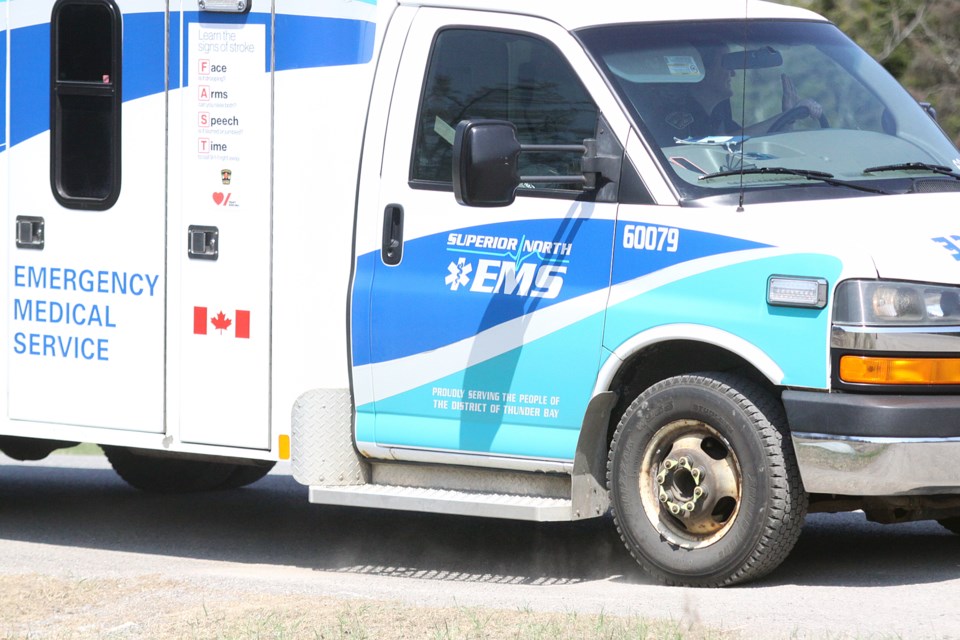THUNDER BAY — Superior North Emergency Medical Services is trying to cope with a significant staffing challenge.
It's because of the number of paramedics who've had to self-isolate as a result of testing positive for COVID-19 or experiencing symptoms of the virus.
The situation prompted SNEMS to issue a statement Wednesday, asking residents to call 911 only if they are experiencing an urgent medical emergency.
Chief Wayne Gates told TBNewswatch that about 20 per cent of the service's 200 paramedics are currently off work.
"It's putting some stress on our system," Gates said.
He blames the Omicron variant, saying its impact on staffing is by far the most severe since the pandemic started in early 2020.
"Full credit to my paramedics. For the last two years we've actually been very fortunate here. None of our paramedics had gotten COVID or had major exposures at work, because of their diligence with PPE," Gates said.
Now, however, "With Omicron, it's just spreading like a cold now, and unfortunately our paramedics are either getting it from contact when they're out in the community with friend or family, but we've also had a couple of exposures at work due to patients."
Gates said the staffing issues worsened over the last couple of weeks.
There have been some occasions on which Superior North EMS has been two ambulance crews short of its normal daily deployment.
Compounding the problem is that Thunder Bay Regional Hospital has been operating over capacity, Gates said.
"That does make it challenging for us sometimes with their off-load delays and trying to get patients released into the Emergency Department."
He said service standards continue to be met for urgent calls, as paramedics are coming in on their days off to work overtime to ensure there's adequate coverage in the city and in district communities.
"If you need to call 911 in a true life-threatening emergency, please do, and we'll get there," Gates said.
Non-urgent calls, however, are more of an issue, and patients can expect to experience wait times that are longer than usual.
Gates said there are other options people should consider in these instances.
"Sometimes we get calls from people who've done a rapid test for COVID, and if they get positive, they call us because they think they need to go to hospital. Or they need a prescription refilled and they call 911. These are cases where it would be much more appropriate to get services through other means."
Superior North EMS provided a list of options for non-emergency calls:
- primary health care providers
- 211
- walk-in clinics
- local pharmacy
- Ontario Health at 1-866-797-0000
Superior North listed the following as examples of situations when it's advisable to call 911 for ambulance service:
- pain or tightness in the chest
- severe pain
- shortness of breath
- choking or having difficulty breathing
- a suspected broken bone
- sudden or severe headaches, vision problems, weakness, numbness and/or tingling in the arm or leg, trouble speaking, dizziness
- a child with diarrhea and vomiting who won't eat or drink
- a baby under six months with a fever over 38.5 C or 101 F
Source: Superior North EMS
